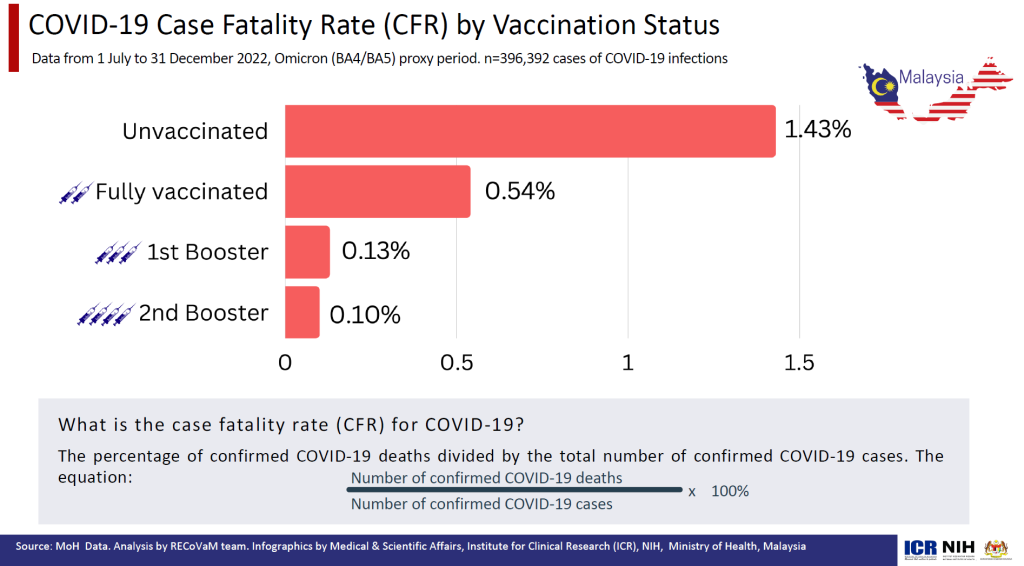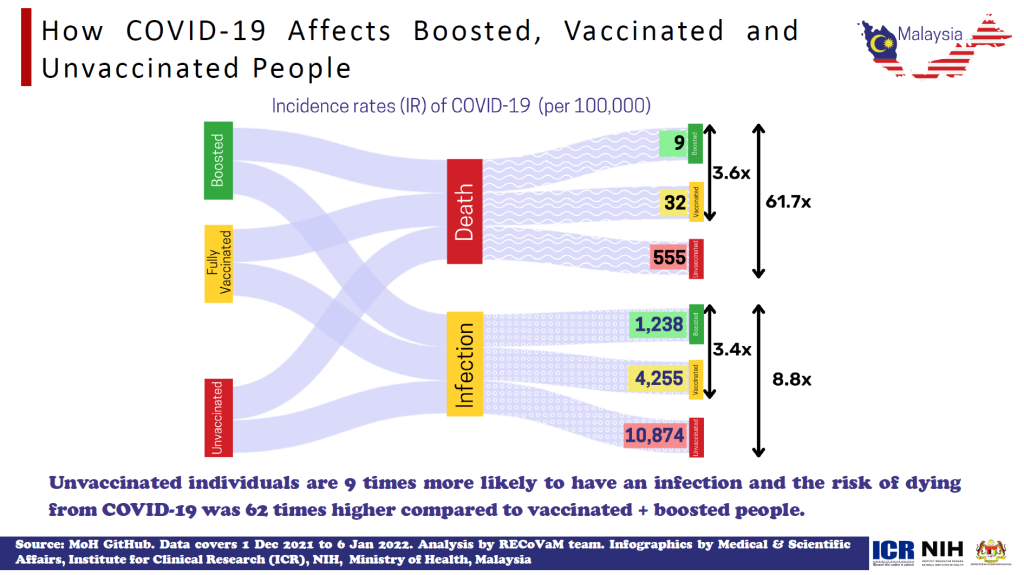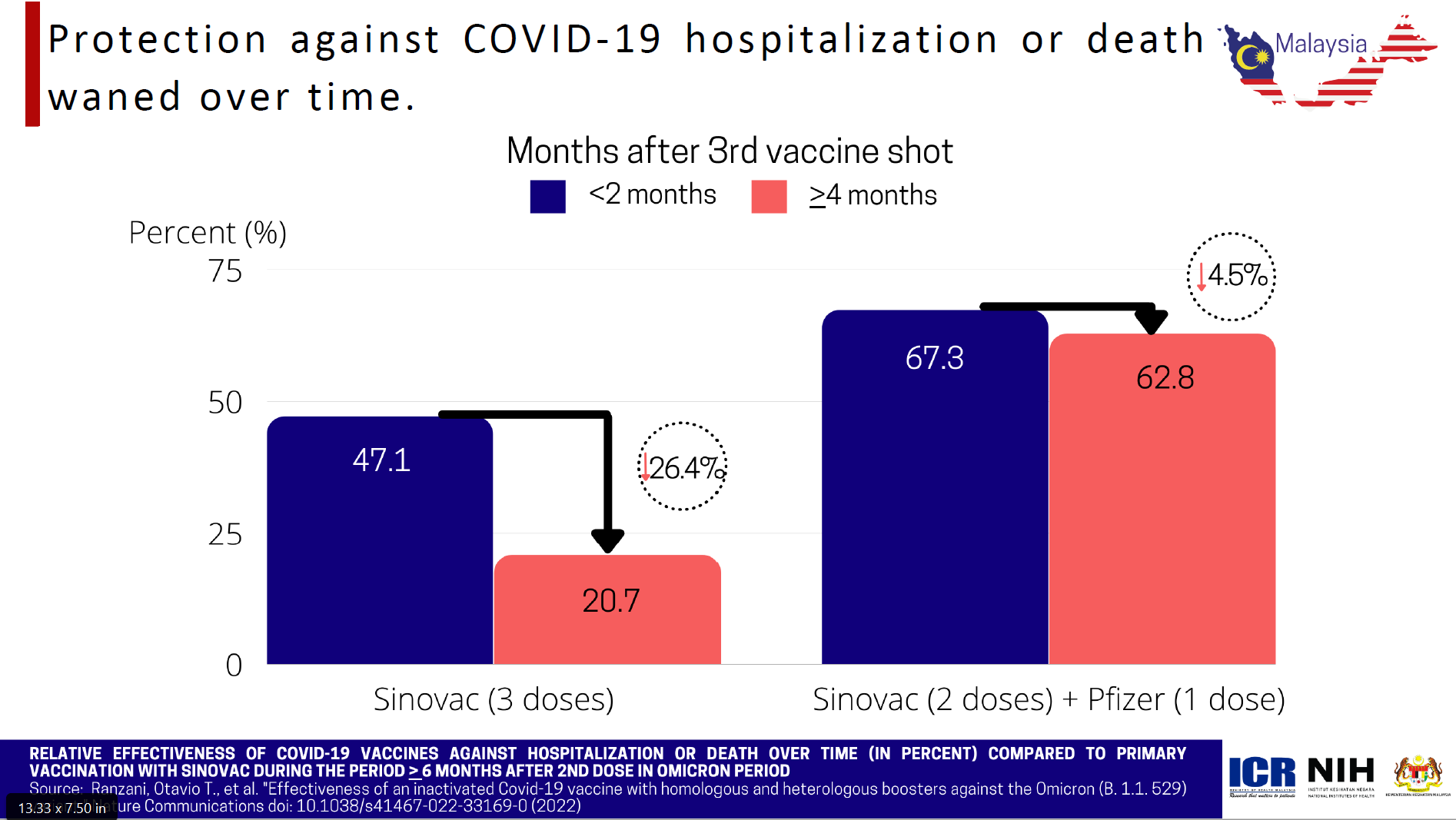KUALA LUMPUR, Jan 10 – A third homologous Sinovac Covid-19 vaccine shot wanes faster after several months, falling from 47.1 per cent protection against hospitalisation or death from Covid-19 less than two months after receiving the third dose, to 20.7 per cent after four months or more.
In contrast, the effectiveness of a third Pfizer Covid-19 vaccine shot after two Sinovac doses fell 4.5 percentage points over the same period, from 67.3 per cent to 62.8 per cent, according to a study published in Nature on October 6 last year cited by Institute of Clinical Research (ICR) director Dr Kalaiarasu Peariasamy.
The Ministry of Health (MOH) has maintained its recommendation to get mRNA vaccines as boosters for Pfizer recipients or individuals who received two Sinovac or AstraZeneca doses.
Dr Kalaiarasu said recommendations were made based on data that point to higher vaccine efficacy of the mRNA vaccine in preventing Covid-19 infection, admission, and deaths. He said those who are contraindicated to the mRNA vaccine, however, may with medical advice be offered other approved Covid-19 vaccines.
“There are no specific recommendations to use AstraZeneca [or Sinovac] Covid-19 vaccines as booster doses because the data that we refer to suggest the use of the mRNA vaccine in terms of its effectiveness,” Dr Kalaiarasu said at a briefing with select media today.
CodeBlue obtained an audio recording of the briefing.
The MOH recommends getting a first mRNA booster dose at least three months after the completion of the primary series vaccine for adults aged 18 years and above. For adolescents aged 12-17 and children aged 5-11, the recommended interval is six months.
For a second mRNA booster, the MOH recommends an interval of four months after the first booster dose for frontline essential workers, women who are pregnant or breastfeeding, residents in long-term care facilities, individuals aged 50 and above, and those aged 18 years or older with at-risk medical conditions.
Healthy individuals aged 18 years and above may be offered a second mRNA booster dose six months after the first booster dose is administered.
For immunocompromised adolescents aged 12-17, the interval for a second booster dose is from three months onwards. Children aged 5-11 with weak immune systems are also recommended to get first booster jabs. There is currently no recommendation for healthy children or adolescents to get a second booster, or fourth dose, yet.

According to MOH data from July 1 to December 31, 2022, the Covid-19 case fatality rate (CFR) was the lowest in booster groups at 0.13 per cent for one booster dose, and 0.1 per cent for two booster doses.
To compare, the CFR for unvaccinated individuals over the period was 1.43 per cent. The CFR among people who received two doses was 0.54 per cent out of 396,392 Covid cases recorded over the six-month period.

In an earlier analysis by the Real-World Evaluation of Covid-19 Vaccines Under the Malaysia National Covid-19 Immunisation Programme (RECoVaM), it found that unvaccinated individuals are 9 times more likely to have an infection, while the risk of dying from Covid-19 was 62 times higher in unvaccinated individuals compared to people who are vaccinated or boosted.








